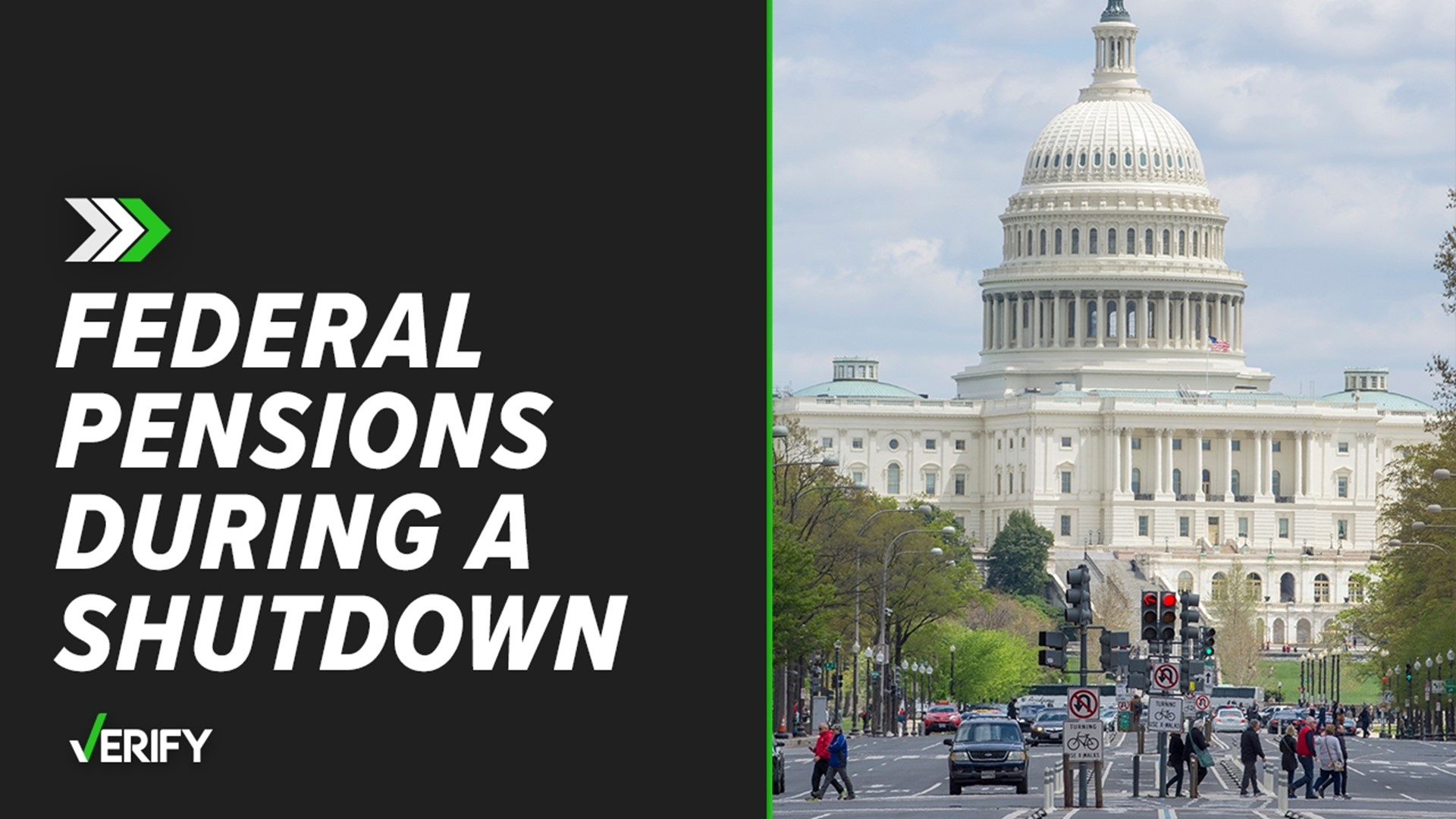UPDATE: Congress passed and President Joe Biden signed a temporary spending bill to keep federal government agencies open through Nov. 17. The original story appears as published below:
The U.S. is heading toward a federal government shutdown that could delay paychecks for many federal workers if Congress fails to pass a funding plan by Sept. 30.
Many VERIFY readers have questions about the potential shutdown, including whether retired federal workers would still receive their retirement checks.
THE QUESTION
Would retired federal workers still be paid during a government shutdown?
THE SOURCES
- The U.S. Office of Personnel Management
- U.S. Department of the Treasury
- John Hatton, staff vice president of Policy and Programs with the National Active and Retired Federal Employees Association (NARFE)
THE ANSWER
Yes, retired federal workers would still be paid during a government shutdown.
WHAT WE FOUND
Retired federal workers would still receive their retirement income during a government shutdown. That’s because Congress doesn’t have to approve the funding for federal retirement payments annually.
When federal workers retire, they typically qualify for monthly retirement income known as annuity payments, which is often referred to as a pension. Retirement annuity payments fall under the “mandatory” category of government spending, John Hatton with the National Active and Retired Federal Employees Association (NARFE) told VERIFY.
Mandatory spending is required by existing federal laws and does not require an annual vote by Congress, the U.S. Treasury Department explains. Funding for entitlement programs such as Social Security and Medicare also falls under the mandatory spending category.
“Annuities are ‘mandatory’ spending, made pursuant to existing statutory law, and paid from the Civil Service Retirement and Disability Trust Fund (CSRDF),” Hatton said. “As such, payment of annuities is not dependent on annually appropriated budget authority.”
The U.S. Office of Personnel Management (OPM) oversees U.S. civilian service, including government workers’ health insurance and retirement benefits programs. In its latest shutdown guidance issued in December 2021, OPM said federal retirees under the Civil Service Retirement Systems (CSRS) and Federal Employees Retirement System (FERS) would “still receive their scheduled annuity payments on the first business day of the month.”
Most civilian federal workers who were hired before 1984 are covered by the CSRS, while those hired in 1984 or later are covered by FERS, the Congressional Research Service (CRS) says in a report.
If a federal worker recently retired, and their agency or payroll center already submitted an application to OPM, they would start to receive interim annuity payments while their application is processed, according to the 2021 shutdown guidance.
But people whose retirement applications have not been submitted may face delays during a shutdown since agencies that provide necessary information may be closed, the guidance says.
Like other federal retirees, military veterans would continue to receive their pensions during a government shutdown, too.
“In the case of a shutdown… VA would continue to process and deliver benefits to veterans, including compensation, pension, education and housing benefits,” Denis McDonough, U.S. Secretary of Veterans Affairs, said in a Sept. 22, 2023 press conference.

